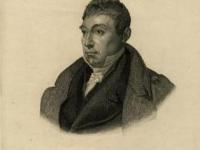Answer: Marquis de Lafayette.
Lafayette began his service in America's Revolutionary War when he came to the country in 1777. During that time he served with General George Washington, helped secure support from France for the Americans, and he played an important role in the action at Yorktown in 1781 that culminated in the surrender of Cornwallis.
After the war, Lafayette returned to France where worked in support of a constitutional monarchy in the years prior to the French Revolution. In 1824, President James Monroe invited Lafayette to return to the United States. He accepted the invitation and was accompanied by his son, George Washington Lafayette. He toured over twenty states between July 1824 and September 1825. He came to Philadelphia on September 28, and a week-long celebration was held in his honor.
In the months following his visit, the men who would eventually establish HSP met several times for the purposes of establishing a historical society in Philadelphia. It is possible that Lafayette's visit, as well as a remembrance paid that same year to the anniversary of Pennsylvania's founding in 1682, sparked a local desire to find a haven for the artifacts and information that made up the region's past.
HSP holds a number of manuscript items related to Lafayette. In particular, there is a collection of letters in the Dreer Collection (#175, vol. 169), and correspondence in the Anthony Wayne Papers (#699). We also have materials from Lafayette’s 1824 return to Philadelphia, including papers of the Marquis de Lafayette Reception Committee (Am .3651), a minute book and guest list from the Lafayette Ball (Am .3196), published accounts of the 1824-25 tour of America, and many graphic items.

